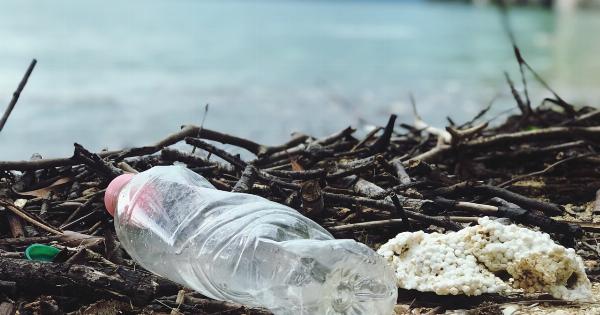Cancer is a disease that has been plaguing humanity for centuries. It is a condition in which abnormal cells divide and spread uncontrollably, often forming tumors.
While there are many factors that can contribute to the development of cancer, such as genetics and lifestyle choices, one factor that is often overlooked is the role of environmental toxins.
What are environmental toxins?
Environmental toxins are substances that are harmful to living organisms and the environment at large. They are often the result of human activity, such as pollution from factories and the use of pesticides and other chemicals in agriculture.
These toxins can enter our bodies through a variety of means, such as inhaling polluted air, consuming contaminated food or water, or absorbing toxins through our skin.
How do environmental toxins cause cancer?
When environmental toxins enter our bodies, they can cause a variety of health problems, including cancer. Some toxins are known carcinogens, meaning they can cause genetic mutations that result in the development of cancer.
For example, exposure to asbestos can cause mesothelioma, a type of cancer that affects the lining of the lungs.
Other toxins can interfere with normal cellular processes, causing cells to divide and grow uncontrollably.
For example, exposure to radiation can increase the risk of developing cancer, as radiation can damage the DNA in our cells, leading to mutations that can cause cancer.
Which environmental toxins are linked to cancer?
There are many environmental toxins that are linked to cancer. Some of the most common toxins include:.
- Asbestos
- Benzene
- Cadmium
- Formaldehyde
- Lead
- Mercury
- Pesticides
- Radon
- Solvents
- Ultraviolet (UV) radiation
Preventing exposure to environmental toxins
Preventing exposure to environmental toxins can be challenging, as many toxins are present in the air we breathe, the food we eat, and the products we use.
However, there are steps we can take to reduce our exposure to toxins and decrease our risk of developing cancer. Some strategies include:.
- Filtering the air in your home
- Using natural cleaning products
- Eating organic foods
- Wearing protective equipment when working with toxins
- Avoiding smoking and other tobacco products
- Limiting exposure to UV radiation
The importance of environmental regulation
While individuals can take steps to reduce their exposure to environmental toxins, ultimately the responsibility for protecting the environment and public health falls on governments and regulatory agencies.
Unfortunately, many governments around the world are slow to act on environmental issues, and corporate interests often take precedence over public health concerns.
It is important to support environmental regulation and advocate for policies that protect public health and the environment.
This can include supporting candidates who prioritize environmental issues, participating in public hearings and demonstrations, and supporting organizations that work to promote environmental protection.
Conclusion
While cancer is a complex disease with many contributing factors, it is clear that environmental toxins play a significant role in its development.
By taking steps to reduce our exposure to toxins and advocating for environmental regulation, we can work to reduce the incidence of cancer and improve public health.































